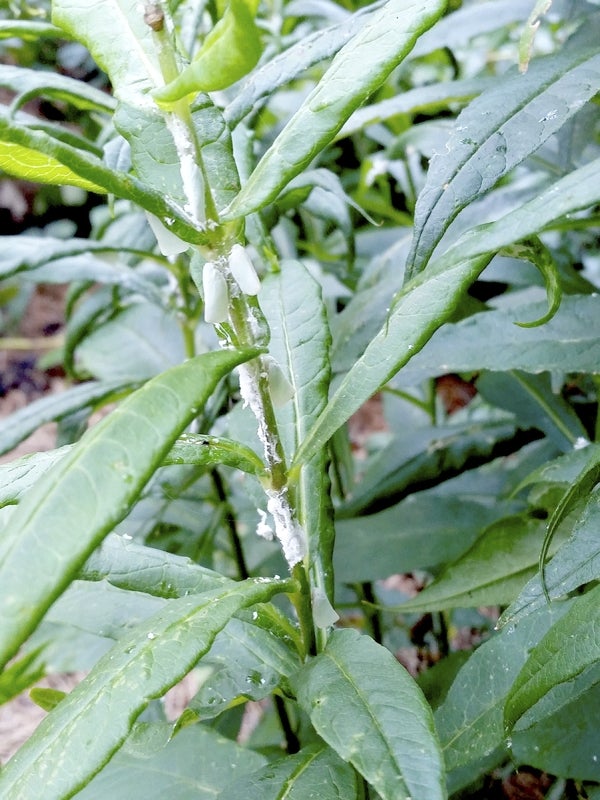Darrell Blackwelder: Excessive heat stressing more plants
Published 12:00 am Friday, June 26, 2015

- Cooperative Extension Planthoppers leave a sticky secretion called honeydew, which is unsightly and may attract black sooty mold.
With the excessively hot weather continuing to linger, many have opted to put outdoor gardening activities on hold.
Spotty afternoon rain showers have helped, but the soil can dry very quickly when temperatures approach the triple digits. As the heat lingers, it’s important to irrigate trees and shrubs, especially newly planted materials.
However, it’s also important not to over-water. Watering a plant every day may create even more problems with root fungal diseases. Always check the soil moisture before irrigation to prevent problems from over-watering. Some larger leafed landscape plants such as hydrangeas tend to wilt on hot days regardless of the soil moisture.
A good rule of thumb is to observe any wilted plants and shrubs early in the morning. If the shrubs are still wilted the next day in the cool of the morning, then you may need to add water. The same situation also applies to container plantings. Containers, baskets, raised beds, etc. dry extremely fast and it may be necessary to irrigate daily, or maybe even twice a day in very hot locations.
Adding mulch conserves moisture, reduces water consumption and also enriches the soil. Add 3 inches to 6 inches of course mulch such as pine bark, pine needles, ground bark, etc. as soon possible to help reduce evaporation and also help deter weeds for the next few weeks.
Temperature extremes often influence problems with insects or diseases. There is one insect pest that seems to be plaguing home gardeners over the past few weeks.
The flatid planthopper or citrus planthopper is causing much distress for many home gardeners, both on shrubs and perennial plants. The flatid planthoppers are usually not abundant enough to cause real damage to the health of ornamental plants, but their presence is disturbing to many gardeners.
The adult is a snow white, wedge-shaped insect that tends to hop off when you touch them. The insect will secrete a white, cottony-like honeydew which tends to disfigure perennial plantings and shrubs. Black, sooty mold often grows in the honeydew deposits, further exacerbating the problem, making plants just look ugly. Adults deposit their eggs under the bark and can cause some damage.
There is currently no pesticide specifically labeled for flatid planthopper control. You can use a general pesticide for other insects that may control the pest. You can also rid these pests by spraying them off the plants with a strong stream of water from a garden hose. More detailed information can be found at http://www.ces.ncsu.edu/depts/ent/notes/O&T/trees/note48/note48.html
Darrell Blackwelder is the county extension director with horticulture responsibilities with the N.C. Cooperative Extension Service in Rowan County. Learn more about Cooperative Extension events and activities by calling 704-216-8970, Facebook or online at www.rowanextension.com




